During concrete construction, wearing gloves is essential to protect your hands. But what kind of gloves provide the ideal protection? Below, we will provide a comprehensive introduction to several commonly used types of gloves for concrete work, so you can make the most informed and effective choice.
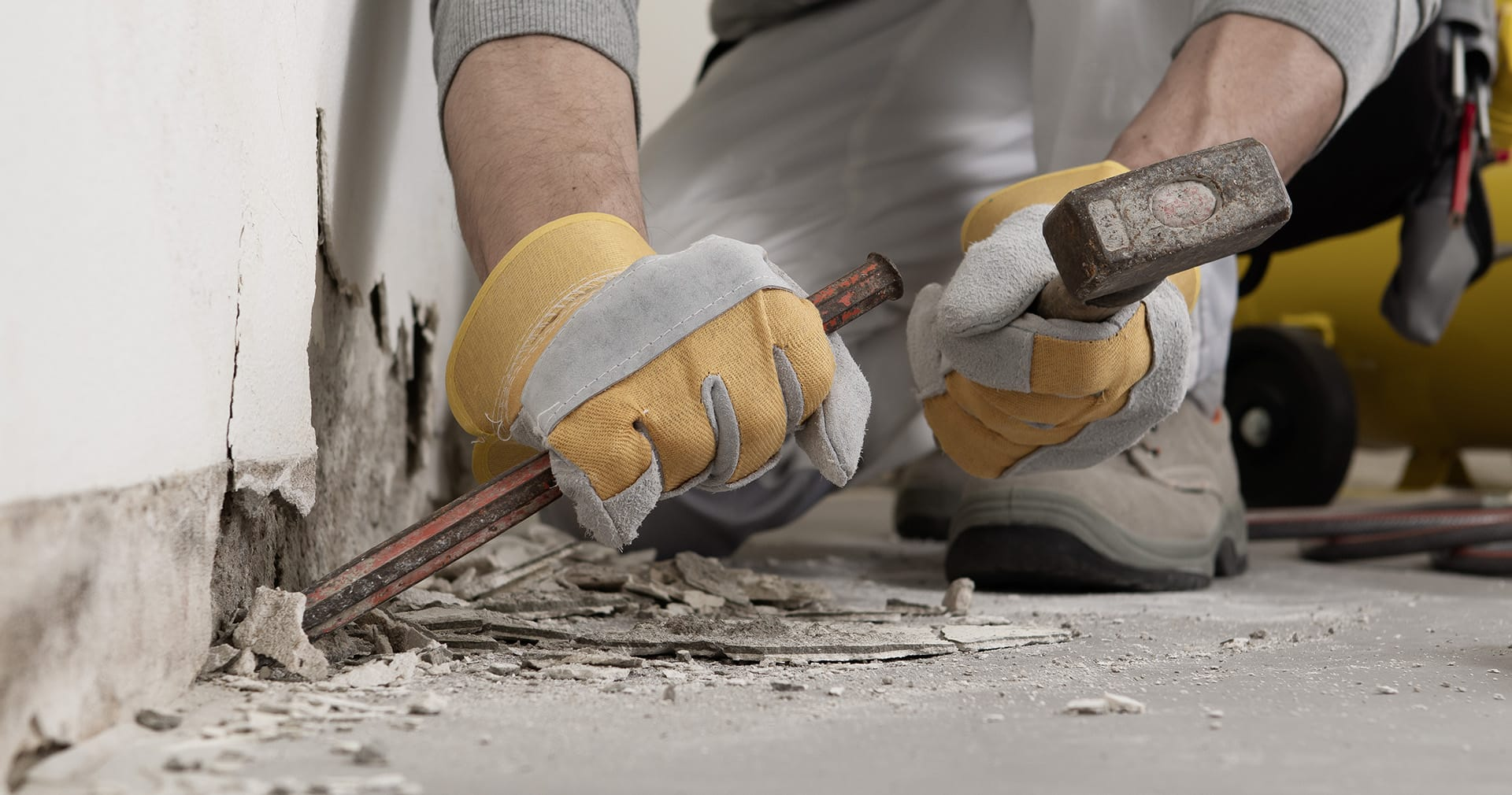
Cut-Resistant Gloves
Cut-resistant gloves are specifically designed to prevent hand injuries caused by sharp objects such as blades, glass, and cutting machines. They are usually made from high-strength fibers such as Kevlar, HPPE, and stainless steel wire.
Advantages
- Protect hands from sharp materials during handling.
- Prevent cuts from concrete debris edges during cleaning and transportation.
- Provide protection against accidental tool contact.
- Withstand long-term work on rough concrete without losing protective function.
Disadvantages
- Most cut-resistant gloves are woven from high-performance fibers, which absorb water in wet environments (e.g., concrete pouring, cleaning, rain), causing cold and discomfort, and making them bulky and less flexible.
- Concrete’s strong alkalinity can corrode fiber materials with prolonged contact, especially in uncoated gloves, leading to aging, brittleness, and reduced protection, shortening glove lifespan.
- Thick coatings reduce breathability, leading to discomfort, sweating, and skin problems (e.g., eczema), especially in hot environments.
- To reach higher cut protection levels, gloves are often thicker or contain metal fibers, which reduce hand flexibility and are unsuitable for tasks requiring fine motor skills.
- Higher cost and faster wear make frequent replacement expensive, which is not ideal for budget-conscious construction sites.
Applications
Cut-resistant gloves are highly effective in tasks involving prolonged handling or contact with rough, hard concrete surfaces, during pouring and cleaning, or when dealing with electrical tools or power sources.
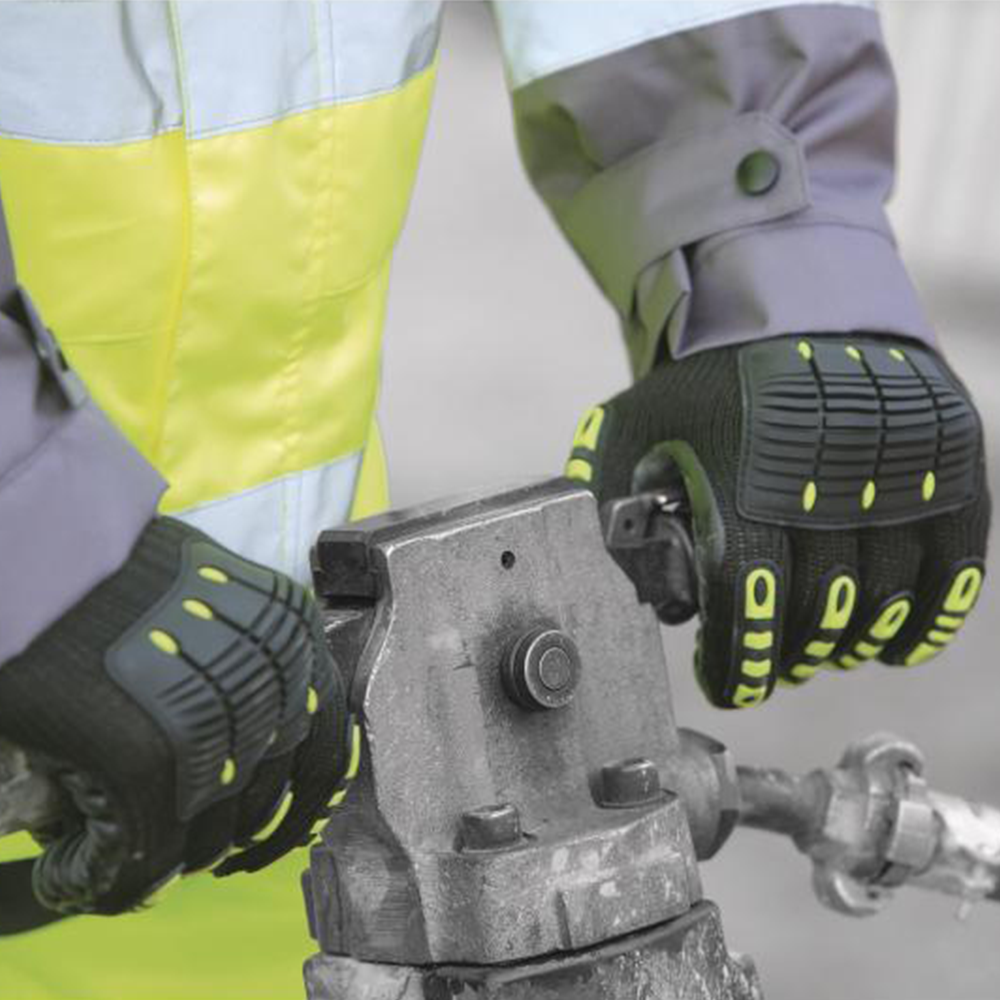
Impact-Resistant Gloves
Impact-resistant gloves are designed to protect hands from mechanical injuries such as impact, crushing, and vibration. They are specialized gloves for high-intensity work environments.
Advantages
- Prevent injuries from tools like hammers, shovels, and spades.
- Offer excellent grip in wet, muddy, or slurry environments to avoid slipping.
- Reduce hand fatigue from prolonged use of vibrating tools.
- Prevent abrasions and collisions with formwork, rebar, and mixers.
- Suitable for repetitive high-intensity movements and harsh construction environments.
Disadvantages
- Generally thick and heavy, which reduces flexibility and makes them unsuitable for fine tasks.
- Poor breathability can cause hands to feel hot and sweaty during extended or high-temperature work.
- Prolonged use can lead to wrist fatigue or muscle soreness.
- Typically cost 2–3 times more than regular gloves, and once damaged, they must be discarded and replaced.
Applications
Impact-resistant gloves are ideal for handling steel formwork, rebar, concrete blocks, vibrating rods, and equipment like immersion vibrators, electric mixers, and concrete saws, as well as during concrete pouring, mixing, and cleaning.
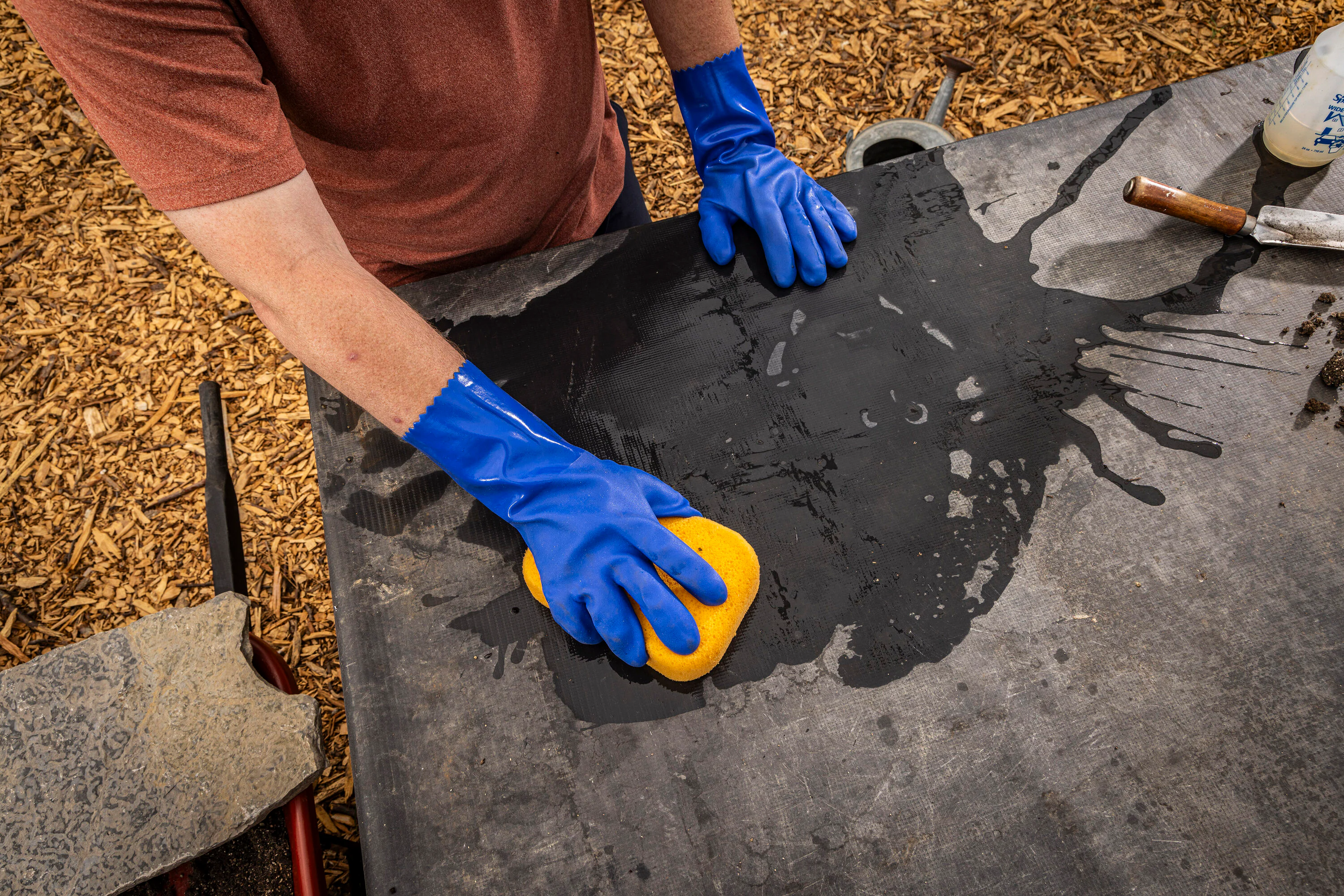
PVC Gloves
PVC gloves are synthetic gloves made primarily from polyvinyl chloride. They offer excellent waterproofing, oil resistance, and corrosion resistance.
Advantages
- Protect against “cement burns” and skin inflammation thanks to good alkaline and chemical resistance.
- Offer basic abrasion resistance and grip to prevent cuts from bricks and rebar.
- Shield hands from additives like acids, alkalis, salts, solvents, accelerators, and antifreeze agents.
- Provide insulation against frostbite and joint issues in extremely cold weather.
Disadvantages
- PVC is thicker and harder than nitrile or latex, which reduces comfort and dexterity.
- Softens or decomposes in high temperatures; not suitable for prolonged UV or sunlight exposure.
- Non-biodegradable and emits harmful substances when burned, making it less eco-friendly.
- While effective against common chemicals, PVC degrades with strong solvents (e.g., ketones, ethers, benzenes) and some cleaning agents.
Applications
PVC gloves are helpful for mixing, pouring, vibrating concrete, cleaning tools and equipment, stripping formwork, and working in rain or wet conditions involving additives.
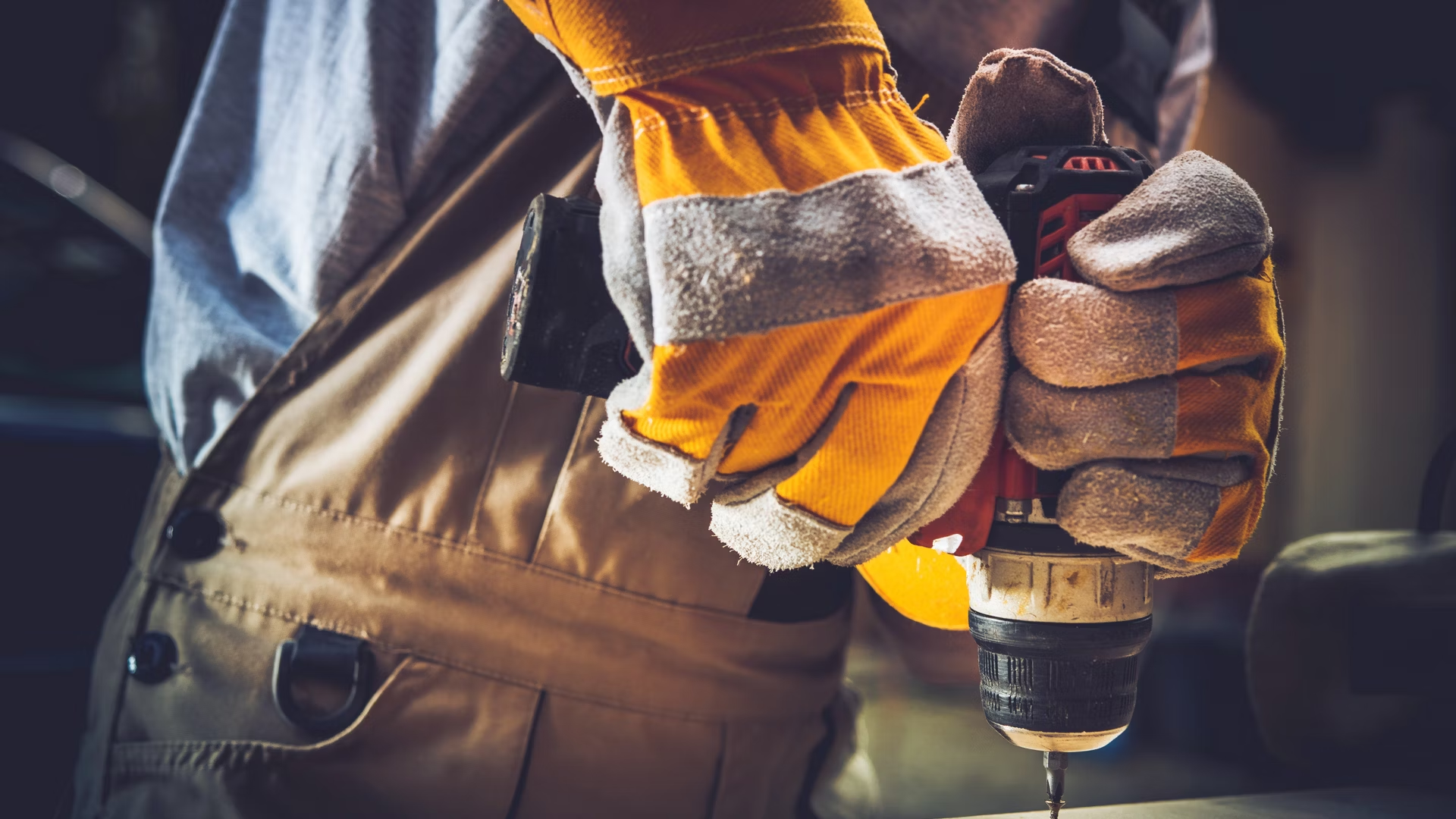
Coated Gloves
Coated gloves are typically made by knitting cotton, nylon, or polyester fabrics, then dipping them in rubber or polyurethane for a protective coating.
Advantages
- Prevent abrasions and enhance hand durability.
- Water, chemical, and corrosion-resistant—help prevent “cement burns.”
- Offer slip resistance and friction protection, while preventing cuts from wood edges.
- Coating reduces minor vibrations and provides a good grip when using tools.
- Protect skin from corrosion by cement slurry and cleaning agents.
Disadvantages
- Prolonged wear may cause sweating, moisture buildup, and discomfort, possibly leading to eczema.
- Sensitive to UV, heat, and chemicals—avoid prolonged exposure to strong alkalis, oils, or direct sunlight to prevent aging, cracking, or hardening.
- May absorb cement slurry or sand in wet work, reducing sensitivity and comfort.
- Natural latex coatings may trigger allergic reactions or dermatitis, especially with frequent use or sweating, potentially posing serious health risks.
Applications
Coated gloves are suitable for handling rough materials like sand, cement, and bricks, as well as concrete mixing and pouring, rebar binding and cutting, and using vibrating tools.
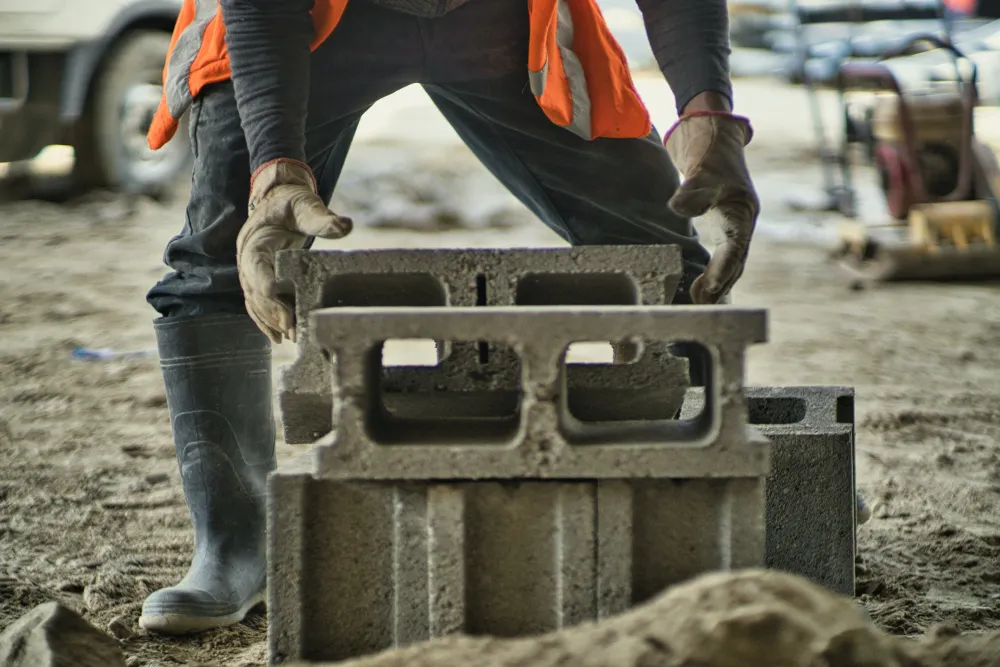
Benefits of Using the Right Concrete Gloves
Wearing the right gloves for concrete work protects your hands from chemicals, cuts, and abrasions while enhancing grip. They help reduce discomfort and strain during long work hours. Proper gloves also prevent calluses, blisters, and skin peeling—ensuring safe, efficient work.
Where to Buy Concrete Gloves?
Trust Aibon to supply the high-quality gloves you need for concrete work. With decades of experience and a commitment to excellent customer service, we offer a wide range of coated and impact-resistant gloves tailored to your specific needs.
Explore our extensive glove selection to find the protection and performance you need. If you have questions or need assistance, don’t hesitate to reach out to our professional sales and support team.
Conclusion
There’s no one-size-fits-all answer when it comes to concrete construction gloves. The best choice depends on your specific work conditions and usage scenarios.
How to Measure Glove Sizes – Source: AIBON
Latex gloves– Source: AIBON
Safety gloves– Source: AIBON
Working gloves– Source: AIBON

